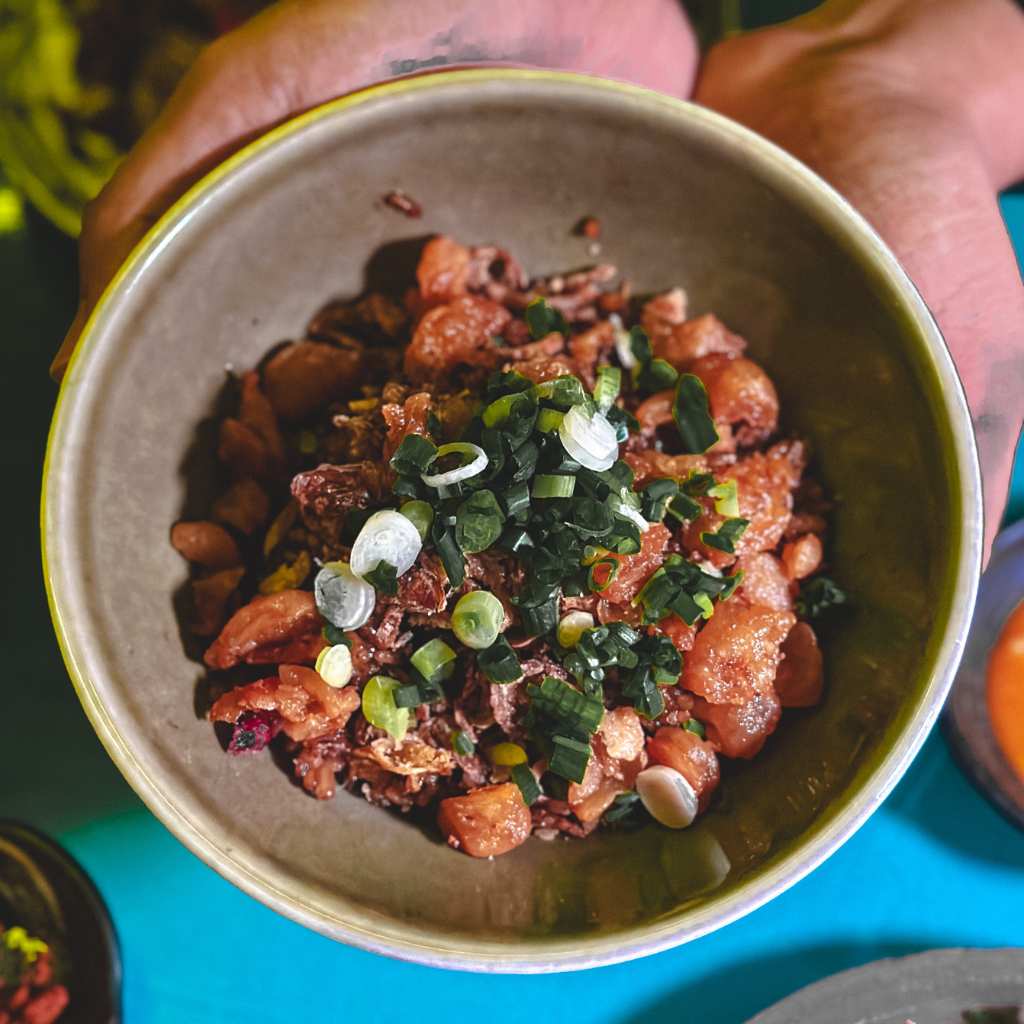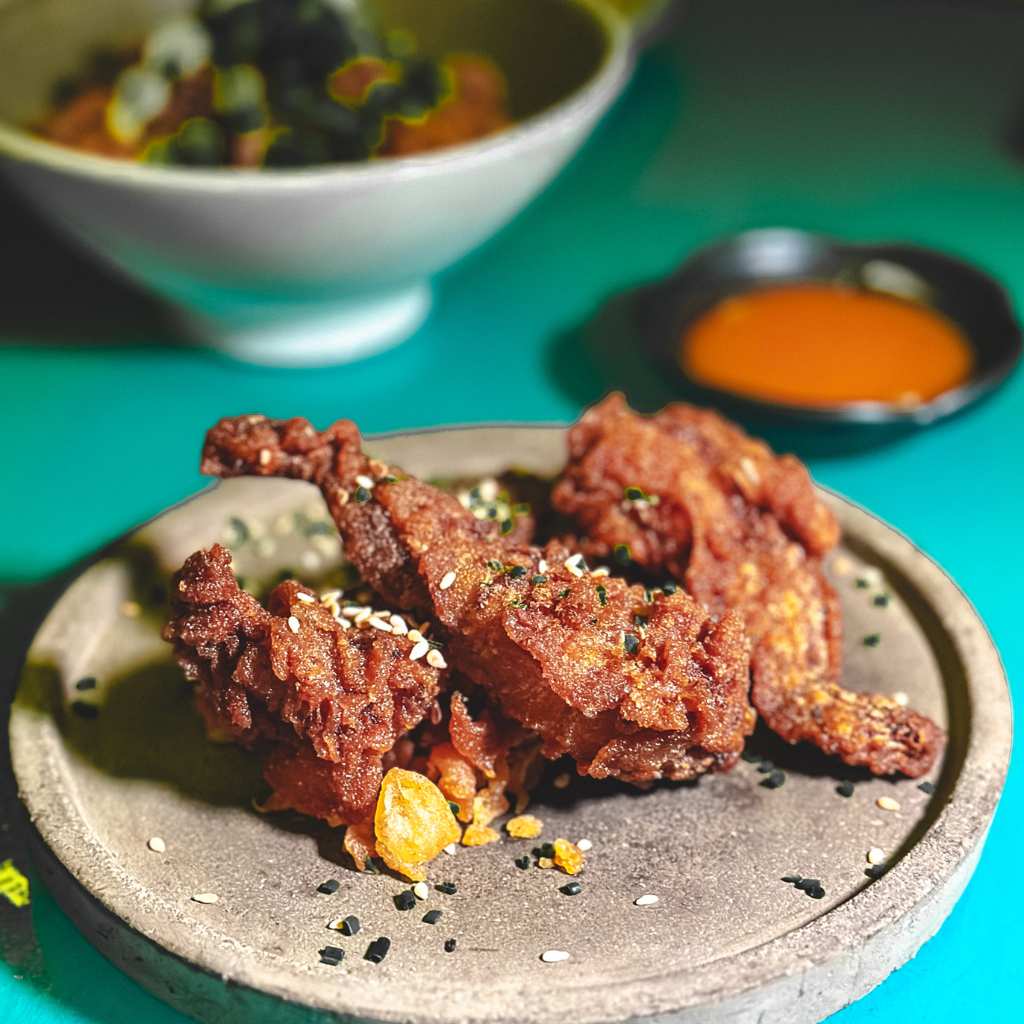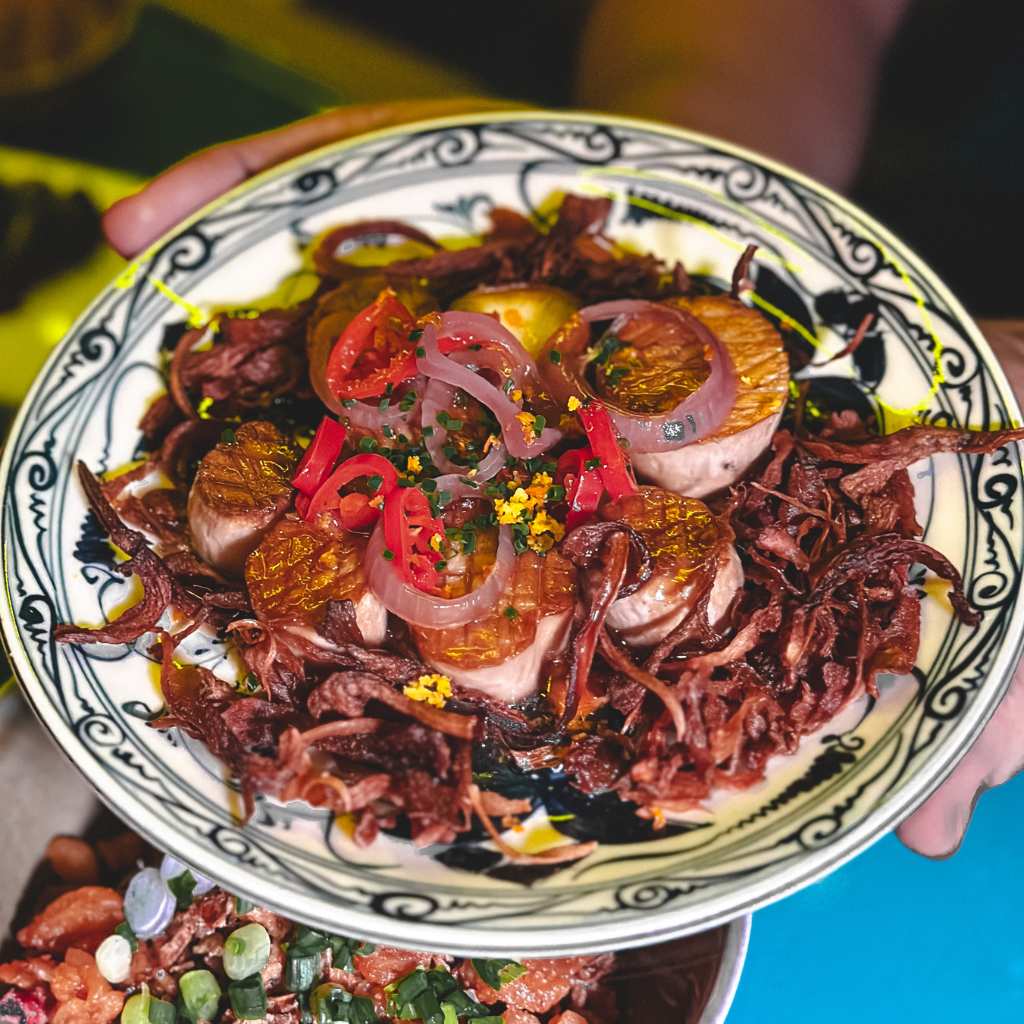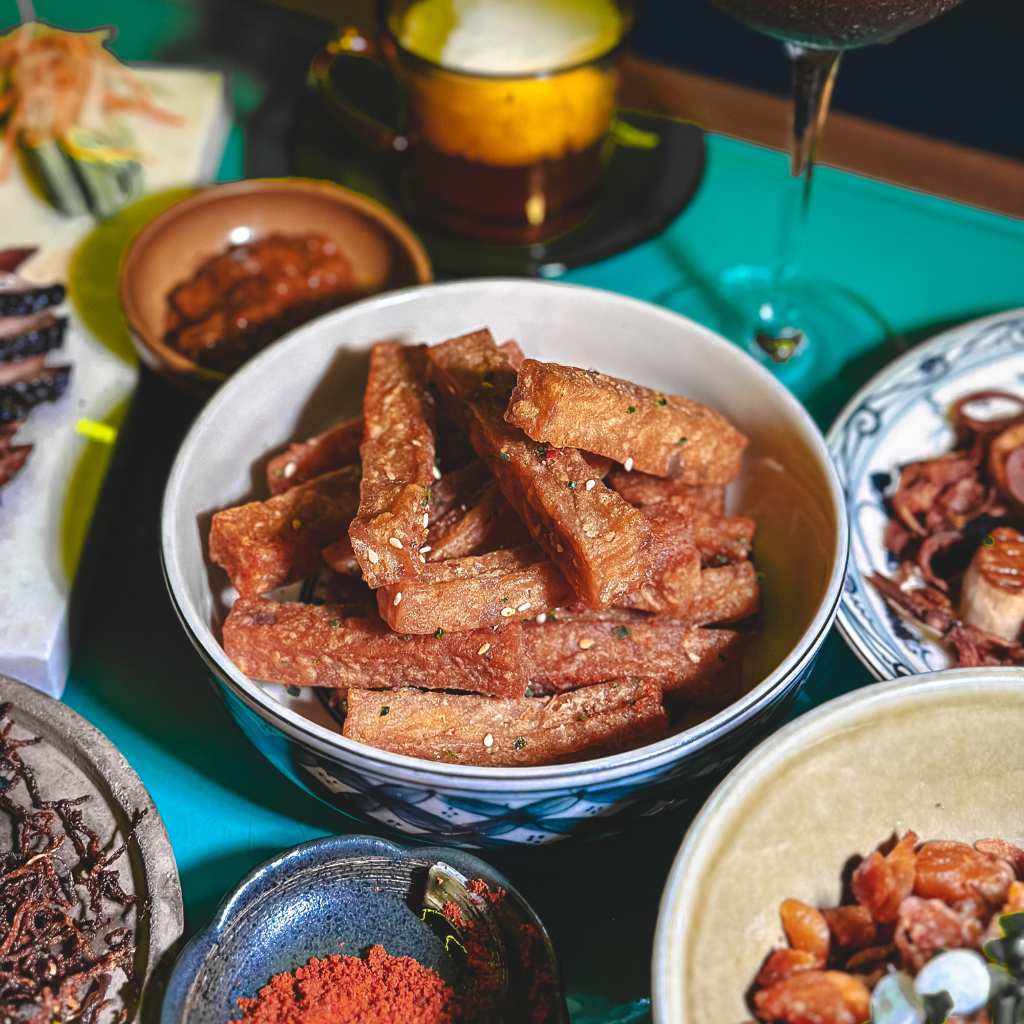1990s HK-style tapas bar Cha Chaan Teng is a step into the set of a Wong Kar Wai film, has quirky cocktails to boot

Searching for a nocturnal escape from the hustle and bustle of the city? Look no further than Cha Chaan Teng in Singapore, the latest themed tapas bar to hit our shores.
Tucked along the quiet streets of Lavender, the tapas bar is a breath of fresh air from the peppy cafes and supper spots along the same stretch.
Swathed in red and green fluorescent lights, Cha Chaan Teng emanates sultry, moody vibes that remind us of a Wong Kar Wai film. Drawing inspiration from the golden age of Hong Kong cinema in the 1990s, the bar gives us plenty to look at and take photos of, but also provides an introspective, art-house ambience that’s perfect for intimate, late-night conversations.
The tapas bar dishes up traditional Hong Kong fare commonly found at authentic breakfast-style diners — just like its namesake cha chaan tengs, but with a contemporary twist.
If you’re looking for hearty, heavier mains, this spot isn’t for you. Instead, the menu leans towards tapas-style dishes, with quirky concoctions to wash them down with.
Traditional Hong Kong fare with a modern twist

The menu is extensive, with an eclectic lineup of dishes that highlight the flavours of Hong Kong cuisine. According to co-founder Mirul, the zyu jau bun faan (S$3.90) — which refers to steamed rice adorned with crispy pork lard — is one of the bestselling items at Cha Chaan Teng.
We admit when the rice dish first arrived, we were a little sceptical. It didn’t appear like much — a bowl of steamed rice topped with bits of pork lard and spring onions.
We were certainly hasty with our judgment. With each bite, the seemingly simple ingredients came together in a surprising symphony of flavours and textures — from the crunch of the fried shallots and pork lard to the sweetness of the fresh spring onions.
Bonus points for the low price, which is hard to come by for such a filling dish.

We’re all too familiar with the local favourite har cheong gai (prawn paste chicken) wings. Cha Chaan Teng shakes things up with its unique rendition, where frog legs (tin gai in Cantonese) are the main protein.
Har cheong tin gai (S$13.90) sees fried frog legs coated in an aromatic, finger-licking shrimp paste marinade. It’s also accompanied by a chef’s secret chilli sauce and boy, is it spicy.
We found that the tender frog meat paired swimmingly well with the robust flavours of the prawn paste coating.
It’s often said that frog legs can taste like chicken wings, so if you’ve grown bored of the classic rendition, give Cha Chaan Teng’s version a try instead.

Mushrooms take centre-stage with the tung koo (S$13.90) dish, which comes in a composition of two different fungi: Eryngii (king trumpet) and dehydrated hiratake (oyster) mushrooms.
They’re prepared in three ways, where they’re braised, fried and sauced for maximum umami-ness. The result? Succulent, juicy eryngii mushrooms with the right ratio of char to flesh, while the hiratake mushrooms impress with their piquant smokiness.
Related Articles:

Cha Chaan Teng’s modern take on the beloved wu tau gou (S$8.90, taro cake) dish is reimagined into yam fries that are easy to savour on the go.
The fries are packaged in a brown bag and served with a side of tasty hae bee hiam (dried shrimp sambal) salt. Pour the salt in and give the bag a good shake to best enjoy the dish — much like McDonald’s iconic seaweed McShaker fries.
But beware: The salt packs a fiery punch, so use it in moderation.
Quirky concoctions

While the bar bites are great to munch on, the cocktails take the limelight at Cha Chaan Teng. They pay tribute to Hong Kong cinema, with drinks quirkily named after movie characters and commonly used phrases.
Take the Mo Wan (S$25), for example. It’s a nod to Hong Kong star Tony Leung’s character Chow Mo-wan in the cult film “In The Mood for Love”.
A concoction imbued with the earthy, herbaceous flavours of cha ye dan (herbal tea eggs), it’s a rye whiskey infused with pineapple liqueur, pineapple bitters and a tea-egg air foam.
It’s also served with captivating theatrics, which make it a must-order. Skilful bartenders craft the drink with heat and fire, so get a counter seat if you’d like a glimpse of the show.

We also chose the Yat Gau Gau (S$23) — a Cantonese phrase used when someone cannot express themselves clearly — simply because of its unique flavour choices.
It’s Cha Chaan Teng’s spin on the classic coffee-and-toast combination. It has, as its base, rum and Irish whisky that has been injected with a coffee campari brew (made with herbs, fruits and plants) and almost-burnt bread. Sip it slowly to enjoy notes of honey and espresso layered within.
We do wish the smokiness from the almost-burnt bread was more nuanced to balance out the strong notes of liquor and espresso, though.
This was a hosted tasting.
For the latest eats, check out the return of LiHo’s limited-edition K-Strawberry series and Tsukiji Fish Market-inspired concept at Hana Restaurant. Alternatively, catch up on the newest openings in town.
Book a ride to try the innovative concoctions at Cha Chaan Teng in Singapore.
Do explore the GrabFood Dine-in service for awesome deals.
Cha Chaan Teng
284 Lavender Street
Nearest MRT station: Bendemeer
Open: Wednesday to Monday (5pm till late)
284 Lavender Street
Nearest MRT station: Bendemeer
Open: Wednesday to Monday (5pm till late)







